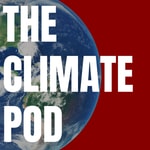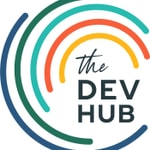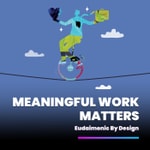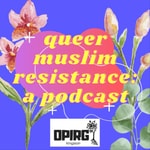Rethinking Development Podcast – Détails, épisodes et analyse
Détails du podcast
Informations techniques et générales issues du flux RSS du podcast.
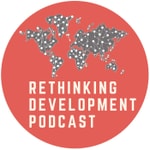
Rethinking Development Podcast
Rethinking Development Podcast
Fréquence : 1 épisode/16j. Total Éps: 56

Long-form, personal conversations with international development and humanitarian aid practitioners, thinkers, activists, academics and more. Conversations center on lived experiences and reflections on ethical issues, power dynamics, systemic challenges and lessons learnt. Common themes: redistributing power, working with diverse stakeholders, negotiating partnerships, measuring impact, learning from mistakes, doing no harm, building trust, ensuring accountability, rejecting saviour complexes, racism, sexism and other forms of discrimination, and much more.
Classements récents
Dernières positions dans les classements Apple Podcasts et Spotify.
Apple Podcasts
🇨🇦 Canada - nonProfit
25/07/2025#93🇨🇦 Canada - nonProfit
24/07/2025#82🇨🇦 Canada - nonProfit
23/07/2025#63🇨🇦 Canada - nonProfit
22/07/2025#50🇨🇦 Canada - nonProfit
21/07/2025#43🇨🇦 Canada - nonProfit
20/07/2025#35🇨🇦 Canada - nonProfit
19/07/2025#25🇫🇷 France - nonProfit
11/07/2025#97🇫🇷 France - nonProfit
10/07/2025#85🇫🇷 France - nonProfit
09/07/2025#80
Spotify
Aucun classement récent disponible
Liens partagés entre épisodes et podcasts
Liens présents dans les descriptions d'épisodes et autres podcasts les utilisant également.
See allQualité et score du flux RSS
Évaluation technique de la qualité et de la structure du flux RSS.
See allScore global : 57%
Historique des publications
Répartition mensuelle des publications d'épisodes au fil des années.
5.2 Development & the COVID 19 Pandemic
Saison 5
mardi 2 novembre 2021 • Durée 57:15
In this episode, Noaman and Safa reflect on the emergence, spread, political economy and impact of the COVID 19 pandemic on development work.
---> Link to Noaman's podcast ( Introduction to Political Economy).
51. Decolonization is not a Metaphor
Saison 5
lundi 20 septembre 2021 • Durée 49:50
Referring to Eve Tuck and K. Wayne Yang's article "Decolonization is Not a Metaphor", Safa and Noaman discuss the overuse and misuse of the term “decolonization” in the development sector and how Frantz Fanon and Amílcar Cabral can be role models for development workers.
Links we mention:
Intro to Political Economy Podcast with Noaman Ali
Decolonization is not a Metaphor by Eve Tuck and K. Wayne Yang
4.4 Gender, Rural Change and Realizing Rights
Saison 4
mercredi 17 mars 2021 • Durée 49:39
Professor Haroon Akram-Lodhi teaches agrarian political economy at Trent University. He is the Editor-in-Chief of the Canadian Journal of Development Studies, an Associate Editor of Feminist Economics, as well as a member of the Advisory Board for the Woman's Rights program of the Open Society Foundations. He further provides extensive advisory services to various UN agencies, including UN Women and the United Nations Development Program. And recently he repackaged some of his university courses into a podcast entitled: "Peasants, Food and Agrarian Change".
We speak about:
- the gender dimensions of rural political economy
- failings of dominant development discourses
- social movements and demanding rights
- the different interests and agendas of development stakeholders
- facing ethical issues in his consultancies & choosing not to work with some organizations
- knowledge mobilization between academia and development agencies
- the human rights based approach /model
- the farmers protests in India
- the impact of COVID-19 on development policies
He joins us from Toronto, Canada.
4.3 Afghan Women in the Lead
Saison 4
mercredi 10 mars 2021 • Durée 55:12
Palwasha Hassan is a women's rights and peace activist who has pioneered many critical initiatives for the promotion of women's rights and civil society in Afghanistan. She has over 20 years of experience working in development and on women's rights and empowerment issues, both in Pakistan and Afghanistan. She is a founding member of several civil society groups, including the Afghan Women's Education Center, Afghan Women's Network and Roazana. In addition she is a two time elected chairperson of the Afghan NGO coordinating body -ACBAR- and a former advisor to Afghanistan's High Peace Council. She also served as the first Afghan woman to head an international NGO in Afghanistan, as Country Director for Rights & Democracy. She was recognized for her accomplishments as one of the 1,000 PeaceWomen nominated for the Nobel Peace Prize in 2005.
We speak about:
- her experiences as an Afghan refugee in Pakistan
- the role of diaspora groups as one of the stakeholders in development processes
- working on law reform in Afghanistan
- advocating for inclusive peace negotiations
- building a feminist movement
- challenging reductive stereotypes of Afghan women
- the hostility and lack of support by some 'expat' women
- being overburdened by activist work and fighting on various fronts
- the problematic ways some development policies are 'forced' on countries
- the need for more genuine international feminist solidarity - and much more!
She joins us from Kabul, Afghanistan.
4.2 Education in Emergencies
Saison 4
mercredi 3 mars 2021 • Durée 42:36
Jessica Oddy is an education in emergencies specialist and a PhD candidate at the University of East London's Centre for Migration, Refugees and Belonging, where she's also a lecturer as part of an Open Learning Initiative Higher Education preparation course for asylum seekers and refugees. Her current research focuses on diverse young people's experiences of education in emergencies, colonial legacies, and how race power and privilege intersect with humanitarian education responses. She has worked with organizations such as Oxfam, War Child UK, Save the Children, Lutheran World Federation, and others.
We speak about:
- education as a protection issue
- racism in the aid sector
- the politics of knowledge production
- the demand for programming for adolescents in education in emergencies
- the narrative of educability
- her PhD journey & action research
- equity based design - and much more!
She joins us from London, UK.
4.1 Racial Equity
Saison 4
mercredi 24 février 2021 • Durée 47:48
Uma Mishra-Newberry is a global social justice advocate and women's rights leader. She began her career in the US Army before becoming an educator and community organizer in the nonprofit and development sectors. She's the former Executive Director of Women's March Global and the initiator of and lead facilitator for the Racial Equity Index.
We speak about:
- community organizing
- building an intersectional feminist movement
- being in a position of leadership
- the crisis of funding in the women’s movement
- rejecting hustle culture and toxic work environments
- problematizing white feminism
- initiating the Racial Equity Index
- working as a collective
- being conscious of our own biases - and much more.
She joins us from Geneva, Switzerland.
3.13 Letters from our Listeners
Saison 3
mercredi 25 novembre 2020 • Durée 17:31
In the last episode of our S 3, host Safa shares some reflections and reads out letters from our listeners. We will be back soon with our S 4!
3.12 Faith Based Charities
Saison 3
mercredi 18 novembre 2020 • Durée 01:01:30
Dr. Mohamed Ashmawey worked in program management and leadership in the private sector for 20 years, with organizations such as General Motors and the National Bank of Egypt. Later he joined the nonprofit sector as CEO of Islamic Relief USA, where he was credited with transforming the corporate culture of the NGO. He went on to become the CEO of Islamic Relief Worldwide, where he continued to lead quality improvements and organizational transformation. Since 2019, he has been serving as the CEO of Human Appeal, a British faith based humanitarian and development charity. He spoke to us about:
- differences between the corporate sector and the charity sector
- challenges to implementing organizational changes
- the advantages and disadvantages of being a faith based charity
- rejecting arrogance and working with humility
- the ongoing investigation of the Charity Commission into Human Appeal
- implementing accountability processes and practicing transparency
- the importance of investing in innovative research
- activity based approach vs. impact based approach
- redefining success
- the difference between leadership and management - and much more!
He joins us from Manchester, UK.
3.11 Strategic Communication
Saison 3
mercredi 11 novembre 2020 • Durée 38:17
Dr. Deepak Gupta has over 28 years of experience as a program and strategic communication advisor for various UN agencies - including UNFPA, UNODC, UNICEF and WHO. He has designed and managed numerous large strategic communication interventions and advocacy campaigns on various development and health issues. His work on risk communication strategies in emergency situations, such as post-tsunami situations and avian influenza contexts, is particularly well noted. He is also a master trainer and expert faculty member at a number of different Institutes, where he leads courses related to strategic communication for development, and has also published extensively on strategic communication issues. He speaks to us about:
- The difference between C4D and corporate marketing
- Rejecting the prescriptive approach to development
- Participatory methods
- The importance of interpersonal communication and human touch
- Overcoming challenges through catalytic change agents
- The pros and cons of social media
- Misinformation and rumours
- Contextualizing communication programs within local cultural settings
- COVID-19 strategic communication failures - and more!
He joins us from New Delhi, India.
3.10 Funding a Feminist Future
Saison 3
mercredi 4 novembre 2020 • Durée 48:53
Rita Thapa has over 35 years of experience as a feminist educator and a community activist in Nepal and internationally. She is the founder of Tewa, the innovative philanthropic Nepal women's fund, and Nagarik Aawaz, a NGO engaged in conflict transformation and peace-building in Nepal. She's also the former Chair of the Executive Board of the Global Fund for Women and former Vice Chair of the Executive Board of the Urgent Action Fund. She currently serves as Chair of the Executive Board of the Global Fund for Community Foundations. Rita was named an Ashoka Fellow in 1998 and was included in the 1000 Women for Peace nomination for the Nobel Peace Prize in 2005. She speaks to us about:
- overcoming aid dependency in Nepal
- an alternative model of fundraising and grantmaking
- dismantling hierarchies in work cultures
- fostering community ownership
- challenging patriarchy, caste and class divisions
- politics of development
- regional feminist solidarity - and much more!
She joins us from Kathmandu, Nepal.

